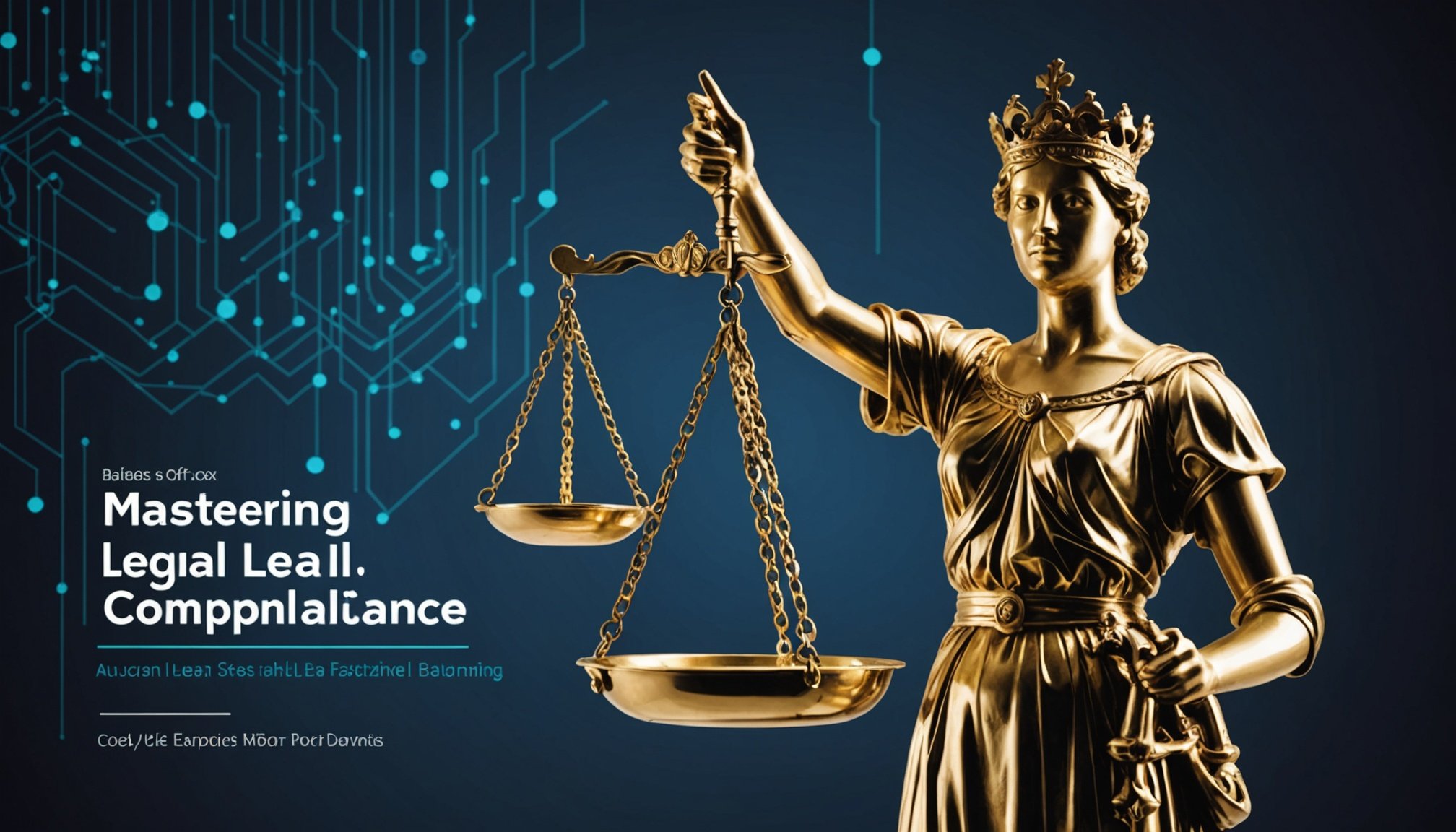Understanding Legal Compliance for UK Businesses
In navigating the complex world of legal compliance, UK businesses must pay close attention to regulations that govern their operations. These UK business regulations encompass a range of requirements, including health and safety laws, employment and environmental standards, and particularly important, data protection regulations.
Compliance frameworks play a crucial role in aligning business operations with these legal mandates. Failing to adhere to these frameworks can lead to significant consequences, including legal penalties and the loss of public trust—a factor especially pertinent to companies utilising machine learning and data analytics. With heightened scrutiny on data processing, businesses must diligently ensure that their data practices comply with established standards to avoid breaches that could damage their reputation.
Also read : Unveiling the Impact of UK Laws on Mobile App Telehealth Data: A Comprehensive Exploration
Moreover, for businesses leveraging machine learning, stringent data protection laws like the General Data Protection Regulation (GDPR) may require specific adjustments to their analytical processes. These legal compliance measures are essential as they not only protect consumer rights but also enhance the sustainability and ethical standing of the business. Recognising the impact of non-compliance is, therefore, imperative to mitigating risks and enabling UK businesses to thrive in the digital age while maintaining legal integrity.
Machine Learning in Data Analytics
In today’s competitive business environment, machine learning plays a pivotal role in data analytics. It empowers businesses to extract meaningful insights from vast datasets that would otherwise remain untapped. So, what exactly makes machine learning significant in data analytics? The precision and efficiency it brings to business intelligence are unparalleled. By automating the analysis of data, machine learning enables real-time decision-making and forecasting, which can substantially enhance operational efficiency.
For UK businesses, the practical applications are numerous, ranging from predictive maintenance in manufacturing to personalised marketing in retail. By integrating machine learning with data analytics, companies can identify patterns and trends that inform product development and customer experience improvements. This integration not only propels innovation but also aids in maintaining a competitive edge.
Moreover, the benefits of this symbiotic relationship are profound. Enhanced data accuracy, cost reductions, and improved strategic planning are just a few advantages. With the right implementation, businesses can overcome traditional barriers associated with data handling and embrace a future of data-driven decision-making. Machine learning thus transforms data analytics from a reactive process to a proactive and predictive powerhouse.
Regulatory Frameworks and Governing Bodies
In the landscape of UK regulatory bodies, comprehending the intricacies is essential for businesses navigating data protection and compliance regulations. These frameworks are orchestrated by major entities, ensuring that companies adhere to legal standards crucial for ethical and secure operations.
Overview of Major Regulatory Bodies
Several key bodies like the Information Commissioner’s Office (ICO) play a pivotal role in enforcing data protection laws. These organisations set the standards for data handling, impacting how businesses manage personal information. Understanding these entities’ roles helps ensure compliance with legal mandates.
Key Data Protection Laws
Laws such as the Data Protection Act 2018 (DPA 2018) align closely with the General Data Protection Regulation (GDPR), safeguarding personal data rights in the UK. These laws dictate how businesses collect, process, and store data, necessitating rigorous compliance to avoid penalties.
Influence of GDPR on UK Businesses
The GDPR significantly influences business practices by requiring greater transparency and data management accountability. Despite Brexit, its principles remain influential within UK regulatory frameworks. Adhering to these regulations not only prevents legal repercussions but also fosters trust and credibility in data-centric operations.
Practical Steps for Compliance
Incorporating effective compliance strategies with machine learning can significantly enhance a business’s operational integrity. The first step involves developing a robust compliance framework that aligns with both technological innovations and UK business regulations. It’s essential to identify potential data risks early on in the analytics process.
To implement these measures effectively, businesses should establish clear implementation guidelines. This includes comprehensive training programs for employees to ensure they are aware of legal standards and best practices regarding data handling. Additionally, deploying advanced monitoring tools can aid in tracking compliance with regulations.
Regular audits and monitoring play a pivotal role in maintaining compliance. By conducting frequent assessments of data management systems and procedures, businesses can swiftly address any discrepancies between their practices and the established compliance frameworks. Such proactive measures not only mitigate the risk of potential breaches but also fortify trust with stakeholders.
Adopting these steps can safeguard a company’s reputation and maintain its competitive edge. In a rapidly evolving digital landscape, businesses that prioritise compliance with innovative machine learning practices will thrive, creating a safer and more secure environment for all involved parties.
Challenges in Achieving Compliance
Navigating the landscape of compliance challenges is critical for businesses leveraging machine learning. A primary hurdle lies in aligning technological innovations with stringent UK business regulations. As machine learning evolves, so do the complexities associated with its implementation, creating potential barriers to compliance.
One prevalent challenge is the lack of clarity in regulations, which can lead to confusion over compliance requirements. Businesses often struggle to bridge the gap between advanced technologies and existing compliance frameworks. Understanding nuanced regulations is crucial to overcoming this barrier.
Leadership plays a pivotal role in fostering a culture of compliance, helping teams navigate these challenges. It is essential for leaders to provide clear guidance and resources to ensure that all staff are informed about compliance obligations and trained in compliance strategies.
Effective risk management is vital for overcoming implementation barriers. By proactively identifying potential risks, companies can devise strategic plans to mitigate them. Some possible strategies include:
- Regular training programs for employees
- Implementing advanced monitoring tools
- Conducting risk assessments
By addressing these challenges through comprehensive strategies and strong leadership, businesses can enhance their compliance efforts, reducing the risk of non-compliance and securing a competitive edge.
Case Studies of Successful Integration
Real-world success stories exemplify the seamless integration of machine learning within compliance frameworks, paving the way for UK businesses. One notable example involves a leading retail company that leveraged machine learning to enhance its data processing, adhering to rigorous compliance regulations. This integration allowed for precise targeting in marketing campaigns while strictly conforming to GDPR mandates. By using machine learning algorithms, they not only improved marketing efficiency but also ensured secure data handling.
Conversely, examination of compliance examples underscores the pitfalls of neglecting these frameworks. A financial institution faced hefty fines after failing to align its machine learning data processes with UK data protection laws. This highlights the necessity of implementing robust compliance strategies.
Drawing lessons from these instances, it becomes clear that a balanced approach to machine learning and compliance is crucial. Implement practical guidelines that resonate with real-world operations, such as prioritising transparent data usage and regular compliance audits. These measures not only avert potential risks but also fortify a business’s ethical legitimacy in a data-driven landscape. With documented case studies as a roadmap, businesses can successfully navigate the complex terrains of machine learning integration with confidence.
Future Trends in Compliance and Machine Learning
In the evolving sphere of compliance, the coming years will see significant changes, especially as machine learning and predictive analytics mature. These trends will likely reshape how UK businesses approach their compliance strategies.
Evolving Regulatory Landscape
Emerging regulations, designed to keep pace with technological advancements, will demand businesses adopt more intricate compliance frameworks. As data becomes even more central to operations, understanding and anticipating regulatory changes will be crucial for maintaining legal integrity.
The Role of AI in Compliance
Artificial Intelligence (AI) will become a formidable ally in enhancing compliance monitoring. By providing real-time insights, AI can swiftly identify potential deviations from compliance norms, ensuring businesses maintain adherence with minimal disruption. This automation not only increases efficiency but also reduces human error in compliance processes.
Predictions for the Next Decade
The next decade promises transformative innovations in data privacy and protection. Businesses will need to stay ahead of these trends to safeguard their operations. Integrating AI-driven predictive analytics into compliance strategies will allow for proactive adaptation to new regulations, ensuring they remain compliant and competitive in a data-centric landscape.











